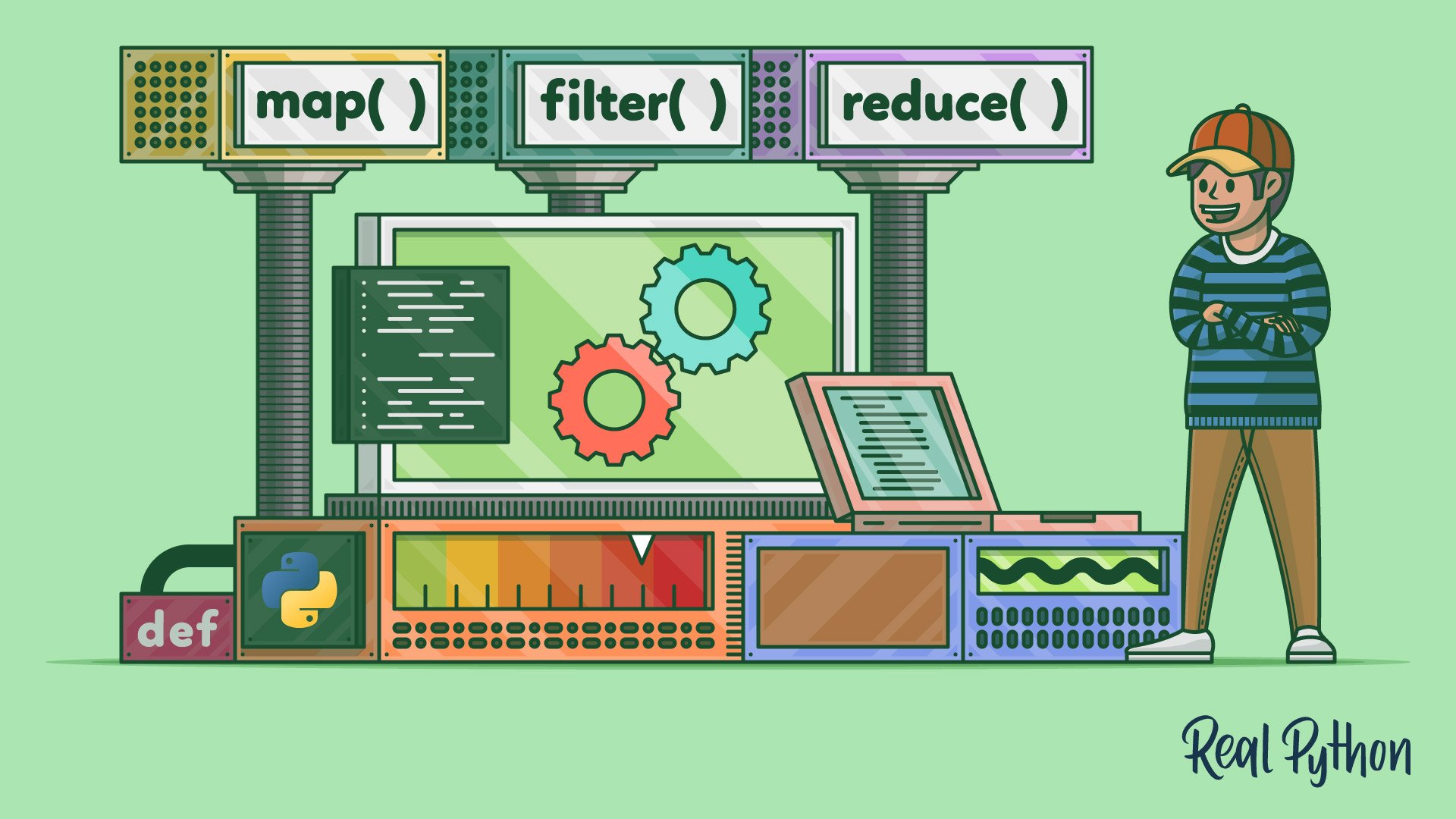functools
The Python functools module provides higher-order functions and tools for working with callable objects.
This module allows you to work with functions in a functional programming style, offering utilities that modify or extend the behavior of functions and methods in Python.
Here’s an example:
>>> import functools
>>> double = functools.partial(lambda x, y: x * y, x=2)
>>> double(5)
10
Key Features
- Provides tools for creating partial functions
- Supports function memoization with
lru_cache - Offers decorators for method caching
- Includes utilities for comparing and ordering
Frequently Used Classes and Functions
| Object | Type | Description |
|---|---|---|
functools.partial |
Function | Returns a new callable object that behaves like the original function with specified arguments |
@functools.lru_cache |
Decorator | Caches function calls with a Least Recently Used (LRU) cache strategy |
functools.reduce() |
Function | Performs a cumulative computation on a sequence of elements |
@functools.singledispatch |
Decorator | Transforms a function into a single-dispatch generic function. |
Examples
Create a partial function that computes powers of 3:
>>> from functools import partial
>>> cube = partial(lambda x, y: x**y, y=3)
>>> cube(4)
64
Use reduce() to compute the product of a list:
>>> from functools import reduce
>>> reduce(lambda x, y: x * y, [1, 2, 3, 4])
24
Common Use Cases
- Creating functions with fixed arguments for repeated use
- Optimizing recursive functions with caching
- Transforming comparison functions for sorting
- Performing cumulative operations on data collections
Real-World Example
Suppose you have a recursive function that calculates Fibonacci numbers, and you want to optimize it by using caching to avoid redundant calculations:
>>> from functools import lru_cache
>>> @lru_cache(maxsize=128)
... def fibonacci(n):
... if n < 2:
... return n
... return fibonacci(n-1) + fibonacci(n-2)
...
>>> fibonacci(100)
354224848179261915075
Here, the @lru_cache decorator significantly improves the performance of the Fibonacci function by storing the results of previously computed values, avoiding the need to recompute them.
Related Resources
Tutorial
Functional Programming in Python: When and How to Use It
In this tutorial, you'll learn about functional programming in Python. You'll see what functional programming is, how it's supported in Python, and how you can use it in your Python code.
For additional information on related topics, take a look at the following resources:
- Python's reduce(): From Functional to Pythonic Style (Tutorial)
- How to Use Python Lambda Functions (Tutorial)
- A Python Guide to the Fibonacci Sequence (Tutorial)
- Caching in Python Using the LRU Cache Strategy (Tutorial)
- Using Functional Programming in Python (Course)
- Functional Programming in Python: When and How to Use It (Quiz)
- Using Python Lambda Functions (Course)
- Python Lambda Functions (Quiz)
- Exploring the Fibonacci Sequence With Python (Course)
- Caching in Python With lru_cache (Course)
By Leodanis Pozo Ramos • Updated July 8, 2025

